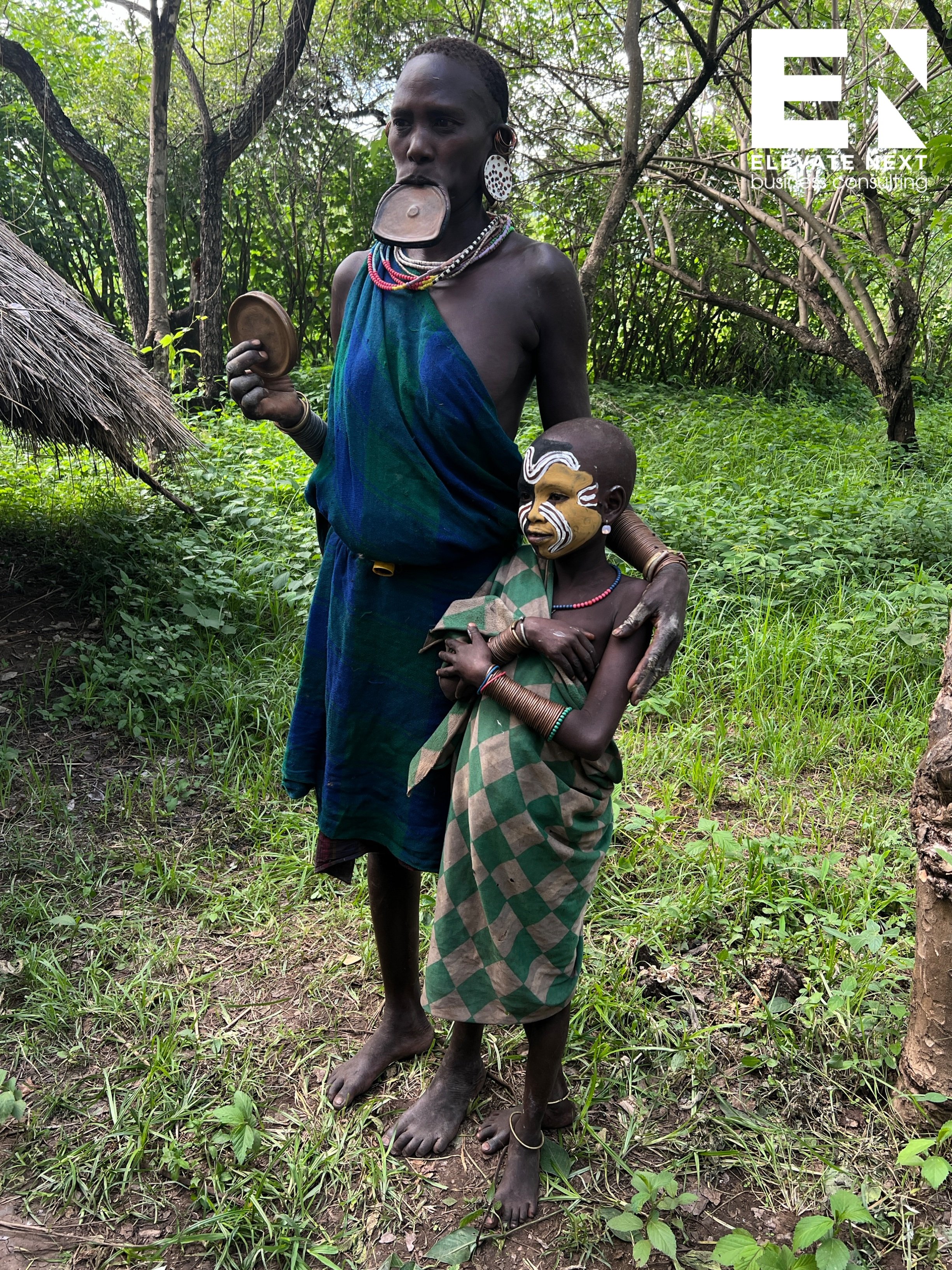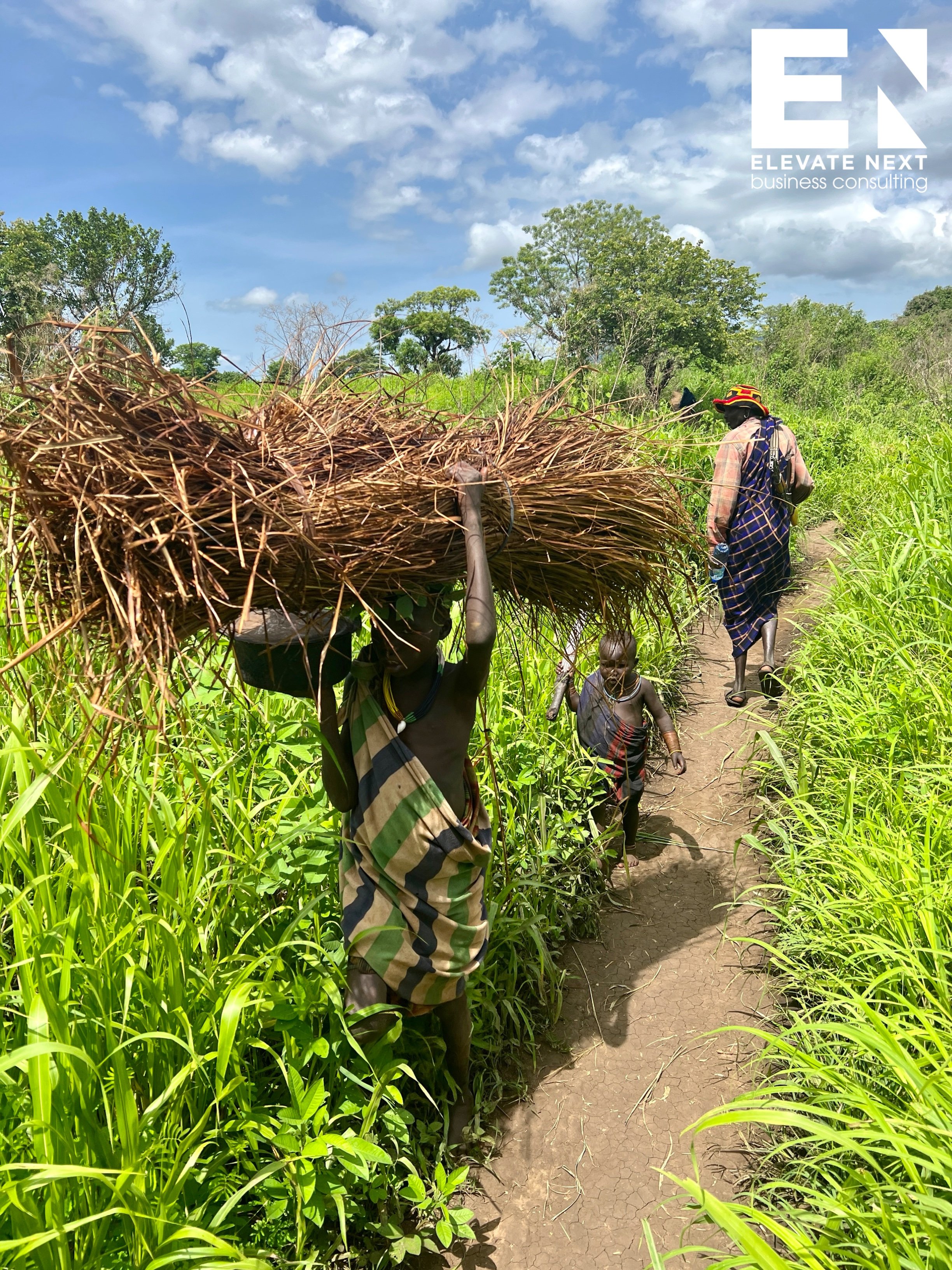The Women of the Suri Tribe Demonstrate 5 Leadership Traits
Photos by Christie Solomon
The Suri tribe is a self-sufficient, agro-pastoral indigenous group rich in land and traditions. The land, which is part of the diverse Omo Valley in Ethiopia, is located in the southwest along the border with South Sudan. The language they speak is part of the Surmic language family. After a recent trek, my impression is that the women are the hardest-working members of the tribe - and they represent a subtle example of strong leadership.
The Suri people are tough. While the men demonstrate their physical prowess through the annual practice of stick fighting (Donga) to attract a female bride, the women demonstrate their fortitude on a daily basis. They take care of their children, work in the fields with them (planting, sowing, and harvesting crops by hand), and prepare the output for trade (sorghum, corn, legumes, spinach, etc.).
Though this practice may start to become less common for the younger generations, the women also endure bodily modifications to beautify themselves for marriage. The women have two bottom teeth removed and their bottom lip cut to allow for increasingly larger, decorative clay lip plates to be inserted. The same practice occurs for the ear lobes. The Suri also practice scarification with thorns, razors, and ash to create a raised design of scar tissue on the skin. Natural clays are used for both skin protection and aesthetic design with men and women using different patterns on the face and body.
After trekking through healthy, rain, and stream-fed agricultural plots of corn and sorghum in the hills, I couldn’t believe that the women had cared for each and every plant by hand - and some even while carrying a baby on their back! The daily work in the fields does not allow for lip or ear plates, but their unique tattoos and clay paint make the women easy to spot.
The Suri women exemplify great leadership traits:
Training: The women teach the children the value of work from a young age. As the boys grow, they start working with the Suri men to protect and care for the herds of cattle and goats. The girls emulate their mothers’ hard work at home and in the fields.
Project Management: The Suri women make their tasks of running the household, caring for their children, and tending to the crops look effortless. The output of their work is indicative of their successful task management.
Negotiation: The women also sell and barter their harvest and manage the family’s income from trade activities.
Work Ethic: The Suri women’s commitment to getting a job done, often in sub-optimal conditions, is unmatched.
Team-Orientation: Their hard work is undertaken with the goal of benefiting their family and village.
While the corporate office environment might not represent similar conditions, the women of the Suri tribe in Ethiopia provide unique leadership role models for us to emulate when we work with teams.








Any customer-facing role is at risk of landing a toxic client. Business leaders and marketers must evaluate prospective customers as they would prospective employees during the hiring process. They should assess the individual for cultural fit and identify undesirable personality traits and mannerisms contradicting their organization’s values and growth objectives.